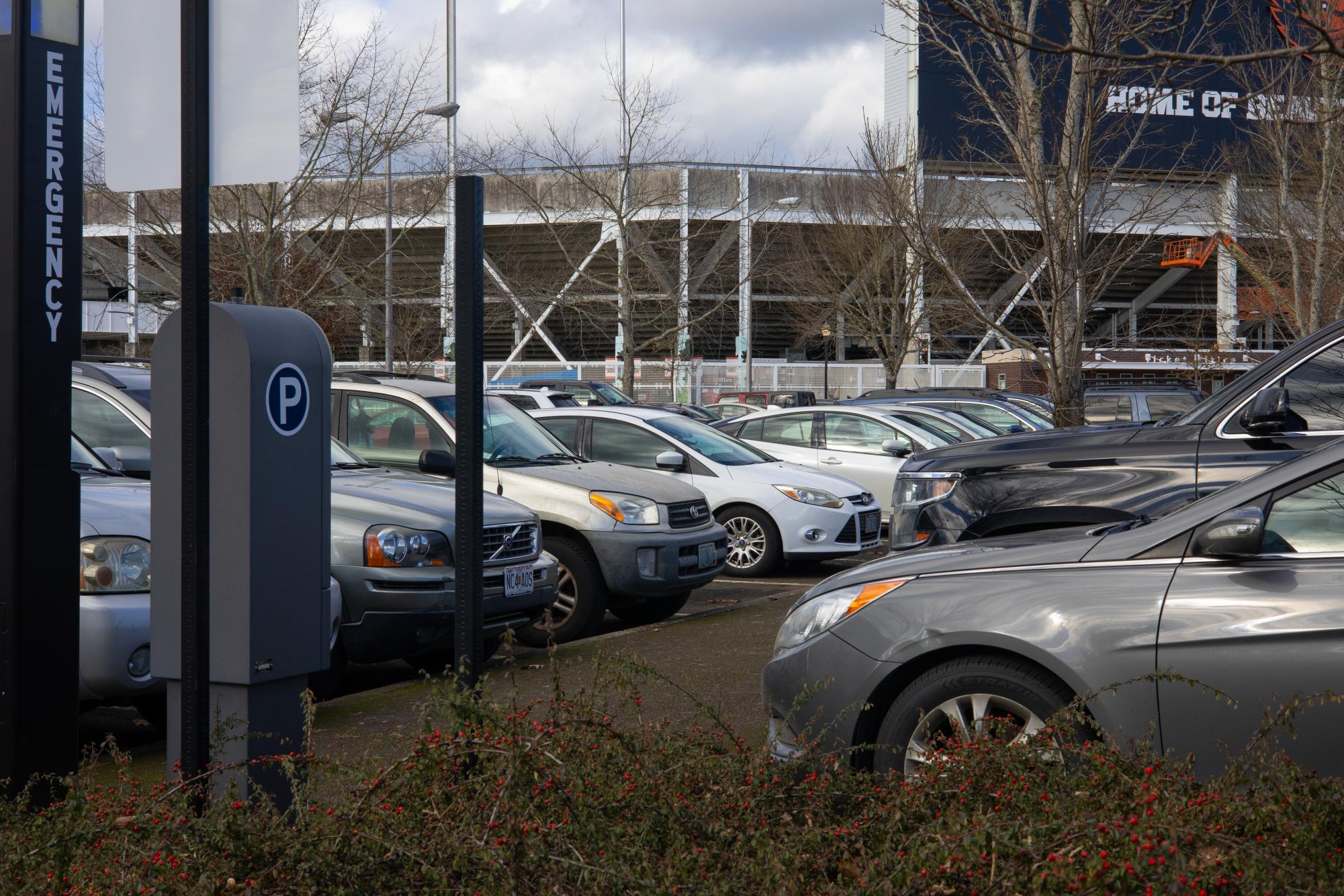Kylee Brown, a third-year studying English and working at Oregon State University, lives in Albany. Without her car, it would be impossible for her to get to campus.
However, she finds herself unable to park on campus as there are never any available parking spaces.
“Especially this year, I have been super frustrated, because not only are parking transportation services closed like the one over by Dutch (Bros.),” Brown said. “They took away A2 lots and turned them into daily lots, but you can’t park there either because they sell out of passes by 8:30 (a.m.).”
With many concerned about the on-campus parking situation, OSU Transportation Services have responded to this and many other questions students have about parking.
OSU Transportation Services is the organization in charge of parking and transportation on campus. According to their website, their goals are to create “transportation programs and services that are safe, sustainable, customer focused and fiscally sound.”

Students, when asked about their issues with the parking on campus, voiced many concerns, including concerns about spaces to parking and the price of the parking permit.
“My question is, ‘Why aren’t there more places to park?” said Jessaia Moala, a business major at OSU. “Just more easier places to park closer to my classes would be better.”
Students aren’t the only people complaining about the parking, as staff are not exempt from paying for parking permits.
“So we’re paying $500 to park at work every year, which is really unfortunate,” said Alexa Montgomery, a microbiologist at OSU. “In addition, I can never park anywhere near my building because there is never parking. So I park way behind Reser (Stadium) and have quite a way to go.”
OSU Transportation Services’s Marketing Manager Sara Hamilton addresses the issues on campus in these ways:
What determines the price of the parking pass?
According to Hamilton, since transportation services is a self-sustaining auxiliary, all of the revenue generated goes back into funding the services and infrastructure for parking on campus.
“As a self-supported auxiliary, transportation services determines prices for parking permits to meet expenses and maintain a balanced budget,” Hamilton said.
Permit holders will receive an email about renewing their permit prior to their permit expiring, and other buyers are encouraged to sign up for email notifications to have the best chance to purchase one when they become available.
Currently, the price of an annual commuter permit ranges from $153 to $720 depending on which zone.
Why not build more parking lots?
According to Hamilton, a study in fall term of 2022 found that only 72% of the available parking spaces on campus are utilized at one time, which Hamilton said, “indicates that OSU does not need to build more parking on campus.”
Where does the money for the parking permits go?
According to the “Where Does Your Money Go” website from transportation services, in the 2023 fiscal year, the money from the passes went towards maintenance, a reserve, salaries, utilities, supplies, equipment, university assessments, debt, the Beaver Bus and a one time transfer of the Higher Education Emergency Relief Fund to the Motor Pool.
The three highest percentages for where their revenue goes are to the reserve at approximately 35%, salaries at approximately 27% and the HEERF transfer at approximately 12%.
The revenue sources for the transportation services are annual parking permit fees, visitor parking, department permit sales, meter parking, parking fines, internal sales to other OSU departments, bicycle locker revenue, sale of surplus equipment and reimbursements from outside entities.
The three highest percentages for where Transportation Services’ revenue comes from annual parking permit fees (approximately 53%), visitor parking (approximately 29%) and department permit sales (approximately 8%).
The reserve fund is maintained for capital expenses such as new parking transportation services and the maintenance or repair of parking facilities and capitalized equipment.
Why do OSU employees have to pay for parking?
OSU’s fiscal policy program states that “In general, university funds may not be used to purchase parking permits for personally owned automobiles of employees.”
What should students do if their only way to get to campus is by car?
Hamilton says that the university is committed to improving the transportation choices for everyone who goes to OSU.
“Corvallis sits in a semi-rural environment where car ownership is still an essential tool for many people,” Hamilton said. “But for many students, the costs of owning and operating a car can be an expensive barrier to accessing education or employment.”
Hamilton then mentions the university is attempting to widen the options for students so they won’t have to use their cars.
“There really is no true option for me other than driving,” Brown said in response to this statement. “I think for a school that preaches so much about inclusion and diversity, they make it really, really hard for people to be here that aren’t actively living on campus or near campus.”












































































































